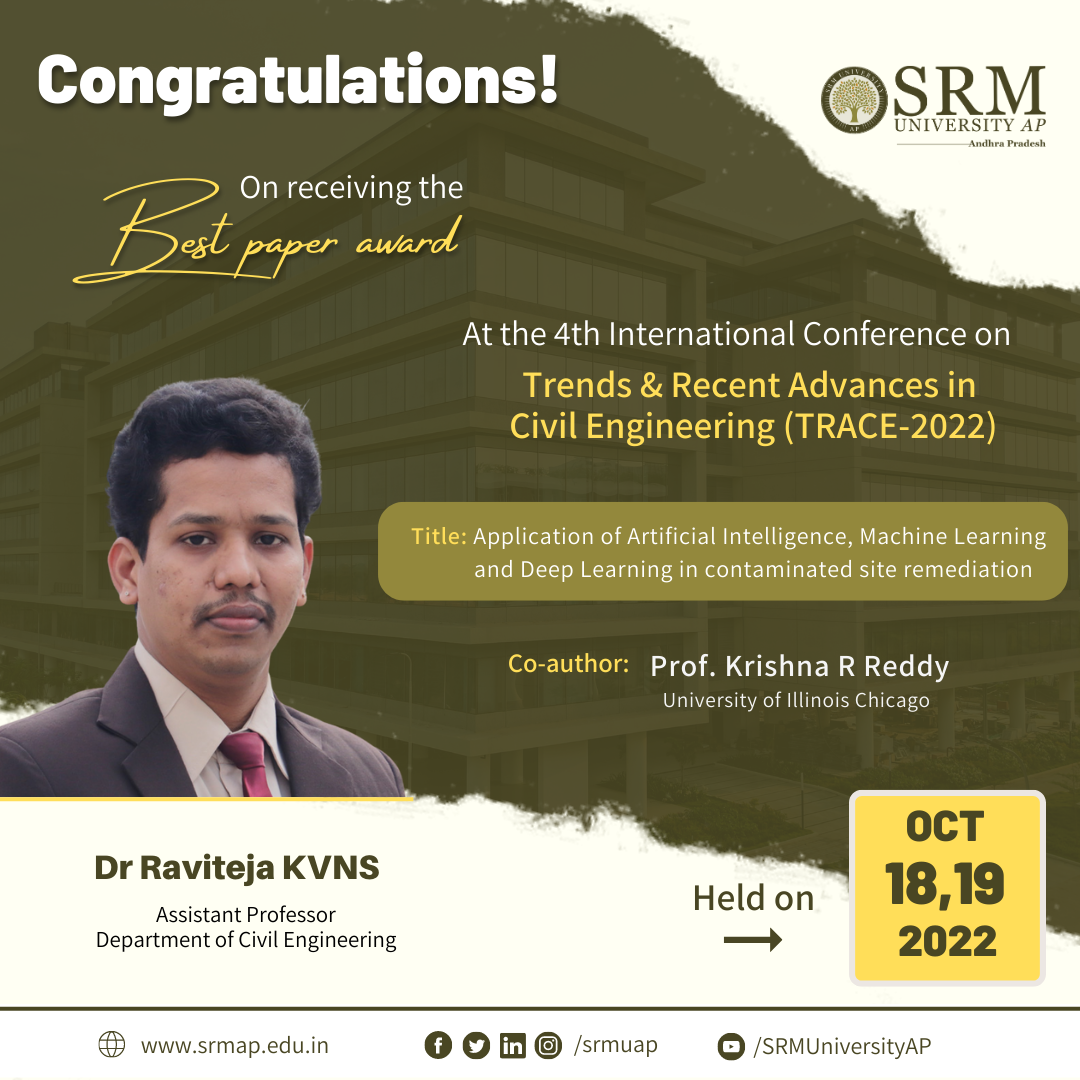 Soil and groundwater contamination is closely interlinked with human society because of its direct impact on population health and socioeconomic activities. The design and implementation of site remediation can be expensive, time-consuming, and may require much human effort. Emerging technologies such as Artificial Intelligence, Machine Learning, and Deep Learning have the potential to make site remediation cost-effective with reduced human effort.
Soil and groundwater contamination is closely interlinked with human society because of its direct impact on population health and socioeconomic activities. The design and implementation of site remediation can be expensive, time-consuming, and may require much human effort. Emerging technologies such as Artificial Intelligence, Machine Learning, and Deep Learning have the potential to make site remediation cost-effective with reduced human effort.
Assistant Professor Dr Raviteja KVNS, Department of Civil Engineering, has received the Best Paper Award at the Fourth International Conference on Trends and Recent Advances in Civil Engineering (TRACE) 2022 for his paper Application of artificial intelligence, machine learning and deep learning in contaminated site remediation. The conference was held at Amity University, Uttar Pradesh, on October 18 and 19, 2022. His research reports the applications of AI and ML in contaminated site remediation.
Dr Raviteja’s future research plan includes studying potential applications of various AI, ML and DL techniques for Geotechnical and Geo-environmental design and testing applications so as to reduce the labours of physical and repetitive testing and associated human effort. This further improves precision as well as aids in decision-making. He has collaborated with Prof. Krishna R Reddy, University of Illinois Chicago, for this research work.
Abstract
Soil and groundwater contamination is caused by improper waste disposal practices and accidental spills, posing a threat to public health and the environment. It is imperative to assess and remediate these contaminated sites to protect public health and the environment as well as to assure sustainable development. Site remediation is inherently complex due to the many variables involved, such as contamination chemistry, fate and transport, geology, and hydrogeology. The selection of remediation method also depends on the contaminant type and distribution and subsurface soil and groundwater conditions. Depending on the type of remediation method, many systems and operating variables can affect the remedial efficiency. The design and implementation of site remediation can be expensive, time-consuming, and may require much human effort. Emerging technologies such as Artificial Intelligence, Machine Learning, and Deep Learning have the potential to make site remediation cost-effective with reduced human effort. This study provides a brief overview of these emerging technologies and presents case studies demonstrating how these technologies can help contaminated site remediation decisions.

